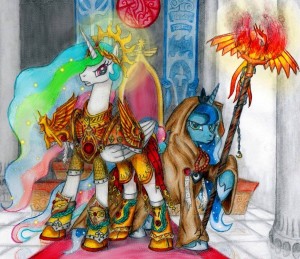 My dad had quite an interest in Greek mythology, which he passed on to me (literally). I read a lot of the myths in my childhood, and I always thought the pagan gods were a lot more sensible than the christian one. Even as a kid I could see that there was something deeply irreconcilable between the state of the world as it was, and the existence of an omniscient, omnipotent, omni-benevolent father figure. I didn’t know back then where Christianity had gone off the rails, what sort of mental contortions they much have gone through to arrive at the current conceptions of their god, but it plainly had nothing to do with the world as it existed.
My dad had quite an interest in Greek mythology, which he passed on to me (literally). I read a lot of the myths in my childhood, and I always thought the pagan gods were a lot more sensible than the christian one. Even as a kid I could see that there was something deeply irreconcilable between the state of the world as it was, and the existence of an omniscient, omnipotent, omni-benevolent father figure. I didn’t know back then where Christianity had gone off the rails, what sort of mental contortions they much have gone through to arrive at the current conceptions of their god, but it plainly had nothing to do with the world as it existed.
The Greek gods, on the other hand, were perfectly consistent with the state of the world. They were extremely powerful, but fallible. Just as susceptible to emotional currents or tidal waves as we are. They could be mistaken, or deceived. Maybe they didn’t actually exist, but they could exist. Which was more than I could say for JHWH. Something’s really wrong with your theology when it’s unbelievable to a nine-year-old with a library card.
I was surprised when, a few years ago, I discovered that my mother considered the Greek gods laughable. I guess they never even considered them a threat to the religion they were trying to teach me, which was why they encouraged my reading. Obviously this was a mistake in retrospect – at least from their point-of-view.
But because of that I’ve always been a bit annoyed by people who don’t consider non-monotheistic theologies as worthy of inclusion in discussions of religion. They may not conform to what you were raised in, but if you’d take five damn minutes to drop your biases and look at it objectively, you’d see that these are traditions are FAR more believable than your christian fairy tales!
Which is what prompted me to object to someone who recently claimed that MLP canon has no religious aspects. Excuse me?
(non-MLP fans can probably stop reading here. Rest of the post likely won’t interest them.) Quoting myself:
I think you’re coming at this from a very modern/western perspective, which is why I disagree with you.
I consider Luna/Celestia to be much like the Greek/Roman pagan gods. They are basically just super-powered humans. They can throw lightning and they are nearly immortal, but they lust and drink and make mistakes just like humans did. They could be killed (with great difficulty), and they had clashing desires and goals that would bring them into conflict. Nonetheless, they were gods, and there are very few historians that wouldn’t consider this a religion.
(responding to “Celestia doesn’t lay down a moral code”) – Morality being the domain of the divine is a monotheistic invention, MANY religions don’t make the claim that what is moral is determined by godly fiat. Euthypro’s Dilemma comes to mind, but this is but one example among many.
(responding to “if you can see them, they don’t count as a god”) – Worshiping people you can see as gods has a long tradition in history. Many rulers were worshipped as living gods, from the Pharaohs down to pre-WW2 Japanese Emperors. I don’t think you can say that their religion didn’t count and was no more than “admiration” just because the worshippers could see their god.
Luna/Celestia worship wouldn’t count as a religion only if you restrict your view of what makes a “legitimate” religion to the modern purified theology of the Euro/American Christian tradition. Not surprisingly, this school of thought tends to heavily favor Protestant & Catholic views. :) Under a wider historical perspective, MLP has a perfectly workable religion.
The counter to my position is that none of the ponies are shown actually worshipping Luna/Celestia. Which, ok, fair enough. But hey, it’s a cartoon for American kids… I’m pretty sure that wouldn’t fly. :) Sometimes you gotta go on the implied.
Meaning of Yom Kippur